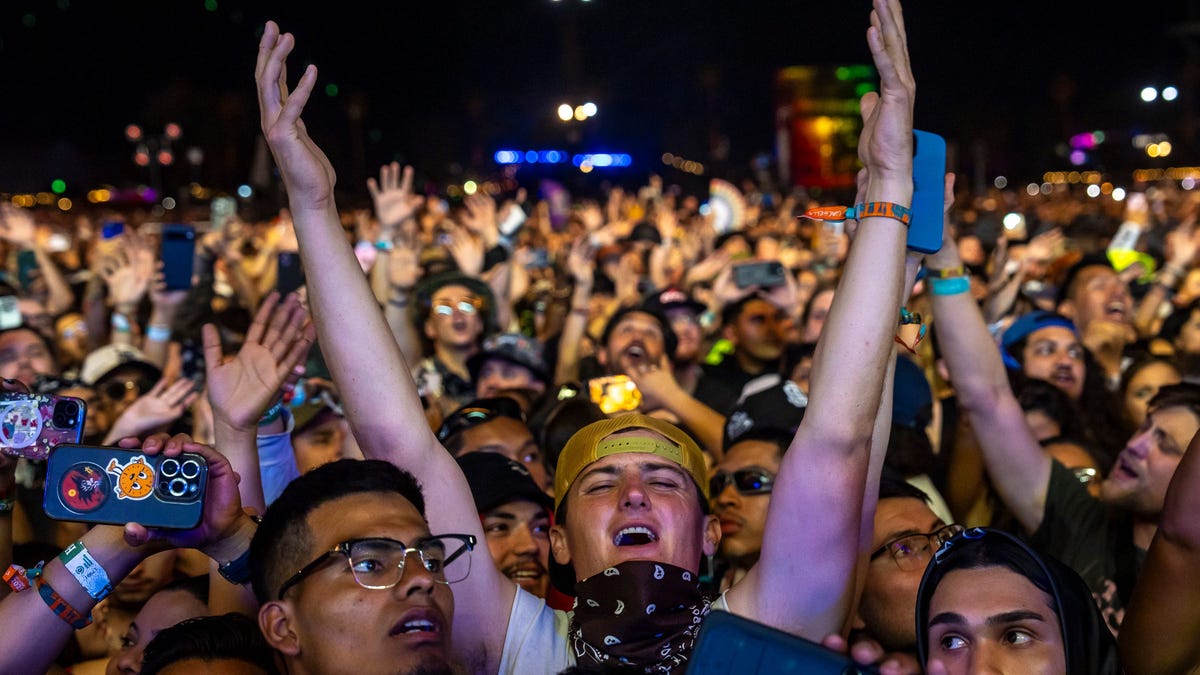Lady Gaga, Green Day and Post Malone headline Coachella 2025
Coachella has announced that Lady Gaga, Post Malone and Green Day will be the three weekend headliners for the festival in 2025.
unbranded – Entertainment
Any concert fan can tell you ticket prices for live music have soared.
The average price jumped from $25.81 in 1996 to $135.92 in 2024, according to Pollstar. Look at the prices for this year’s biggest events: A weekend at Coachella starts around $600; Lollapalooza single-day tickets – the only ones still available – start at $189; the cheapest seats for Lady Gaga, Beyoncé and Kendrick Lamar average around $200.
For older generations who hold the country’s wealth, that’s irksome. But for younger consumers who value experiences over material goods and are often swayed by a collective fear of missing out, that’s a costly problem.
For many Gen Zers, not going to a show is not an option, so they’re taking advantage of an old-fashioned solution: payment plans. Everyone from ticket brokers to festival organizers are seeing big growth in the number of buyers opting for what amounts to layaway for live music.
Concert payment plans may make life easier, but fans would rather ticket prices just went down
Music fans will find payment plans vary by event and seller, but in general they ask for a relatively small down amount to sign up, followed by spilt installments. Some plans are offered by the festival organizers, while others leverage outside vendors such as Klarna, Zip, Affirm and PayPal.
More than 60% of the estimated 80,000-plus attendees at Coachella – where Lady Gaga, Post Malone, Benson Boone, Green Day and Travis Scott were among the headliners – used the festival’s payment plan, according to Billboard.
And it’s not just for music festivals. Olivia Lima, 29, who runs New Jersey-based photography business Olivia Alysse Photo, is no stranger to financing concert fun. She’s been to hundreds of shows in her life, and says “music has just been something that’s gotten me though things in life – the good, the bad and ugly.”
That’s why she’s opted for payment plans to get her through the gates.
Last fall, Lima decided she wanted to attend the My Chemical Romance show slated for Philadelphia this summer. She says she was on Ticketmaster’s website the instant tickets went on sale, but within minutes was faced with prices far over face value as surge pricing went into effect.
“The cheapest ticket wound up being $273, including the payment plan fee, but I went for it,” she says. “It was around the holidays, and it just made it easier on my pocketbook.”
For Lima, the new approach to financing her fun is just something she’s come to accept, if grudgingly. “It annoys me with how inflated these things are now, compared to what they used to be,” she says.
Tickets are just one part of the cost of seeing live music: ‘Sometimes you have to pick and choose’
Understandable that many music fans are nostalgic for the glory days. Take Bruce Springsteen tickets: In 1976, fans could see him live for only $8 dollars – $44 adjusted for inflation. In 2024, the average ticket price for a Springsteen concert was $150.69, according to Pollstar.
Then consider that entry to a concert or music festival is just one piece of the overall cost that includes transportation, lodging, food and merch, and payment plans start to look even more appealing.
In the case of Coachella, plans required as little as $50 up front, with the remainder paid out over the months leading up to the festival. The service incurs a $41 fee, or about 8% of the base ticket price, which is far less than if the ticket were paid for on credit cards that typically have annual interest rates of 20%. If any payments are more than 10 days past due, the order is cancelled and the fan gets a credit for future events.
Most buy-now-pay-later lenders calculate payments based on credit score, which tend to be lower for Gen Zers, teens to 28-year-olds, compared to generations who have had time to build creditworthiness. Interest fees and late-payment fees vary by provider.
For photographer Lima, juggling payments is worth it in order to experience something truly transformational.
“With all the consumerism happening in our country, it’s hard to find those moments of community and spiritual connection that a lot of people look for,” she says. “For me, music helps me spiritually, not so much in a religious sense, but it helps me connect with myself and others. Festivals and concerts are places where all these people from all these walks of life who might not normally interact, meet up. There’s a touch of that magic.”
That said, Lima is skipping this summer’s festival season. She’s heading to Europe on vacation instead.
“You can’t do it all, and sometimes you have to pick and choose,” she says with a laugh. “But no, I’ll make sure I can keep going to concerts, one way or the other.”
Contributing: Sara Chernikoff, USA TODAY

Leave a Reply